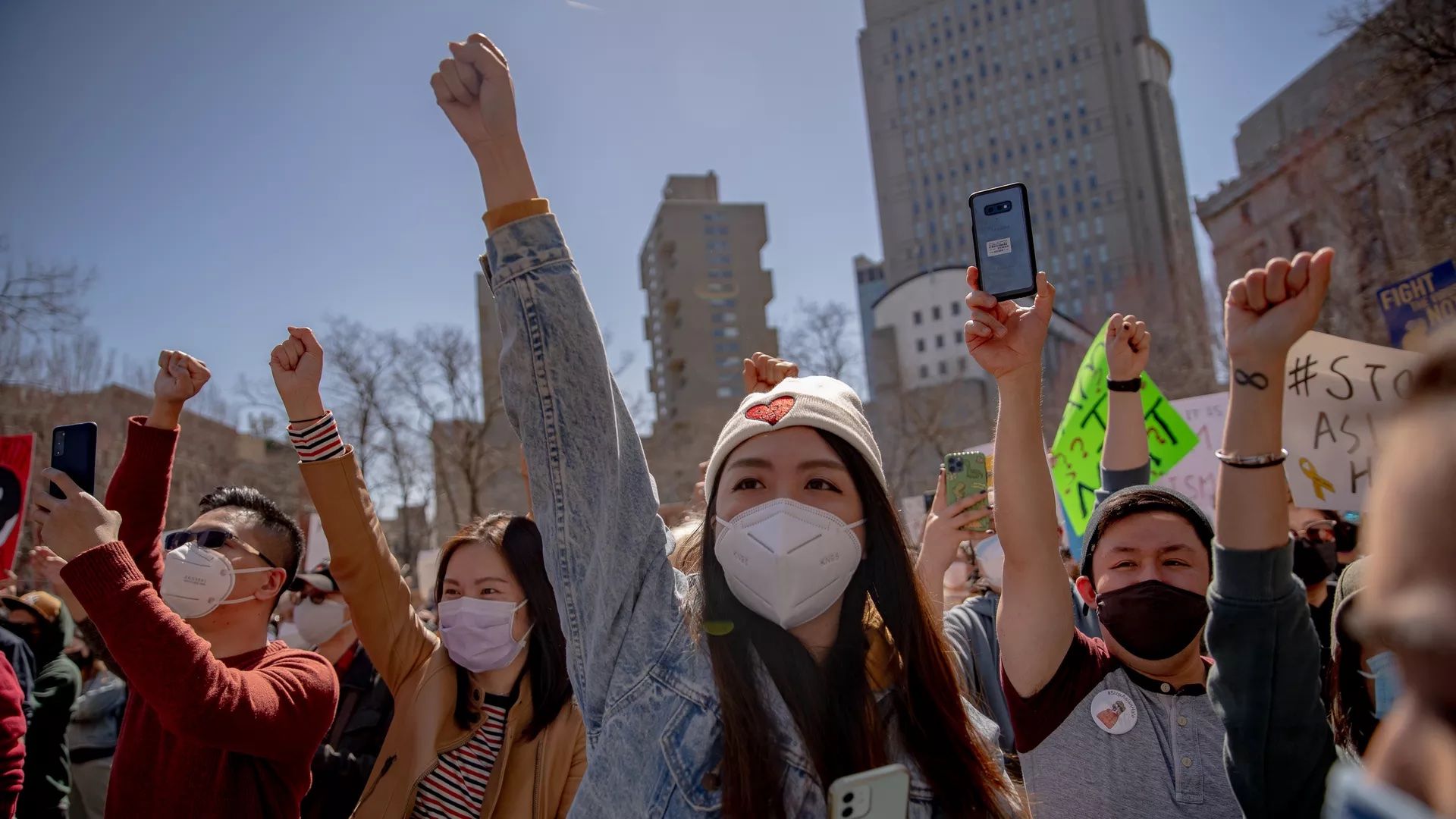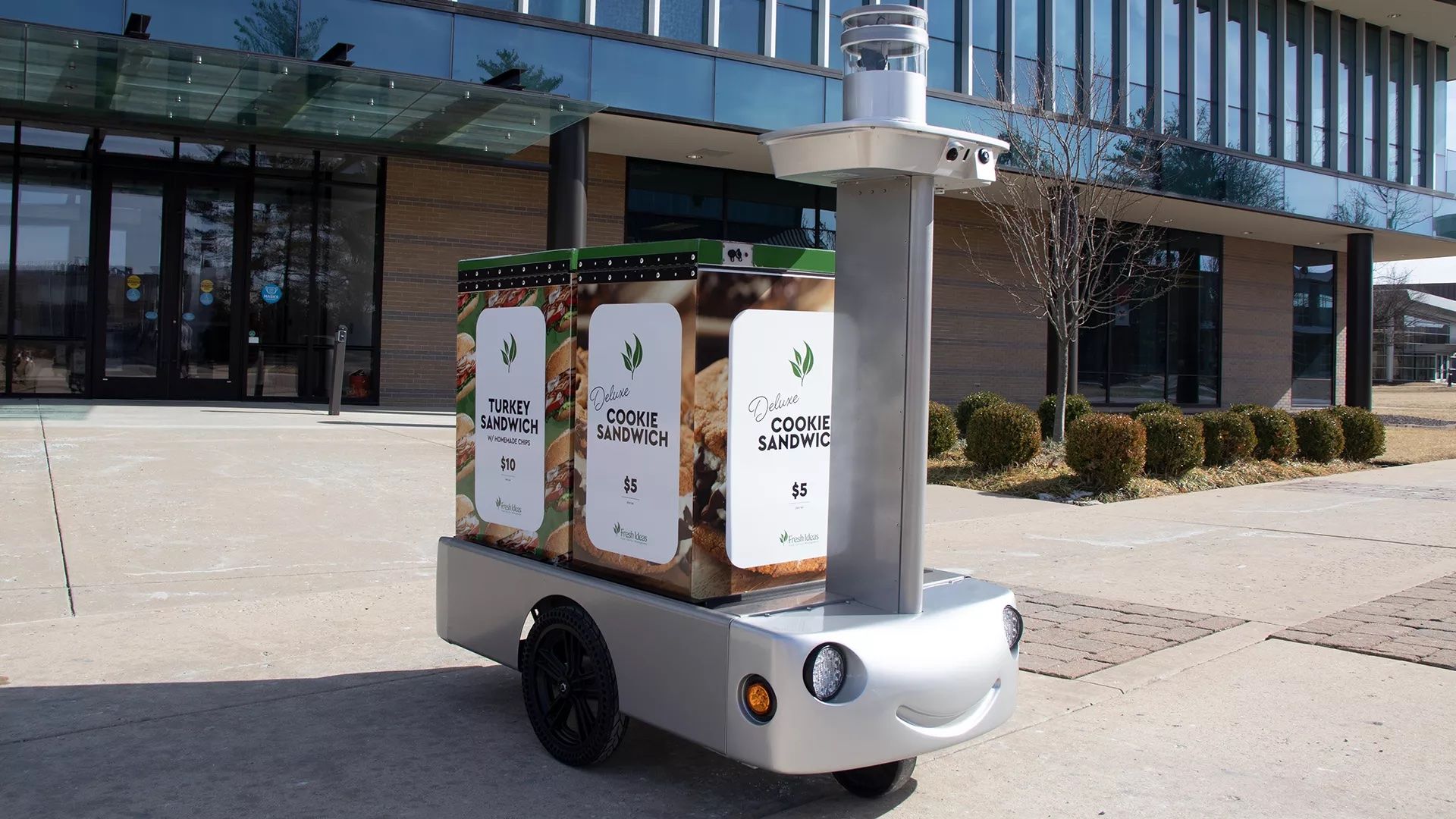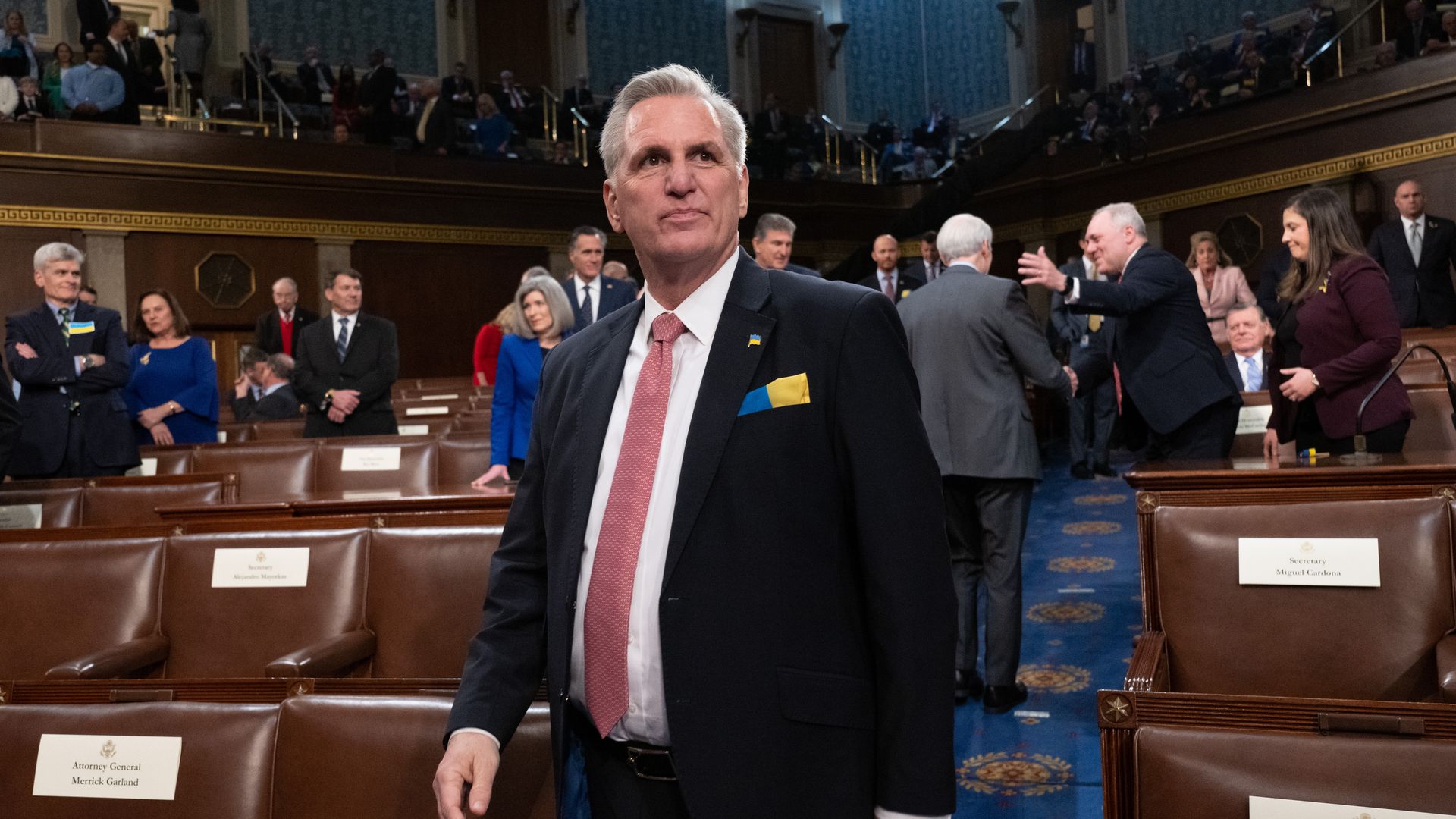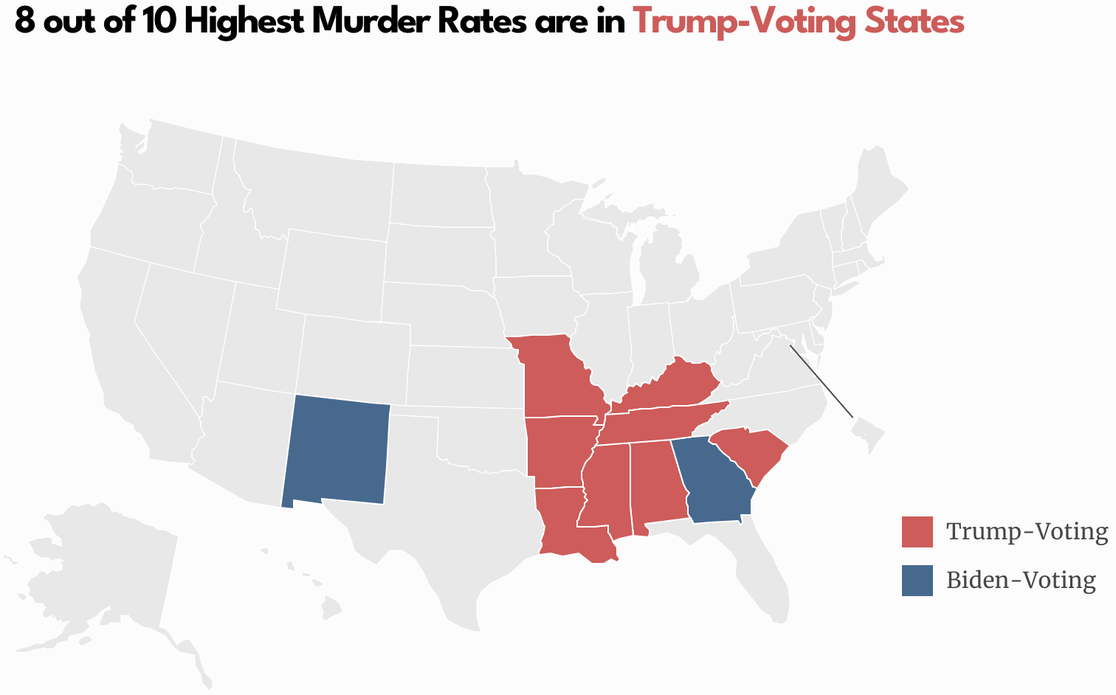| | | | | | | Presented By Facebook | | | | Axios AM | | By Mike Allen ·Mar 16, 2022 | | Good Wednesday morning. Smart Brevity™ count: 1,486 words ... 5½ mins. Edited by Zachary Basu. 🔮 We hope you'll join Axios virtually for our inaugural What's Next Summit on Tue., April 5. Register here to attend livestream sessions on Next Cities ... Work Shifts ... Financial Flux ... Electric Everything ... and Trending Tech. | | | | | | 1 big thing: Zelensky's shame-on-you tour | | Zelensky receives a standing ovation from the Canadian parliament in Ottawa yesterday. Photo: Adrian Wyld /The Canadian Press via AP Ukraine President Volodymyr Zelensky will call out the U.S. today when he addresses Congress virtually at 9 a.m. — as he did yesterday with the Canadian parliament, and as he has done around the world. - The big picture: Three weeks into Russia's invasion, Zelensky has invoked Winston Churchill, Hamlet, Canadian cultural landmarks and his own demise as he's made deeply emotional appeals to Western leaders and lawmakers, Axios' Zachary Basu writes.
In Ottawa on Tuesday, Zelensky made it first-name personal as he asked Prime Minister Justin Trudeau and lawmakers for help enacting a no-fly zone over Ukraine. - "Justin, can you imagine you and your children hearing all these severe explosions, the bombing of the airport, the bombing of the Ottawa airport?" Zelensky asked.
In London last week, Ukraine's wartime leader channeled Churchill as he told the U.K. parliament: "We will not give up, and we will not lose ... We will fight in the forests, in the fields, on the shores, in the streets." - In Brussels on Day 1, Zelensky helped secure an unprecedented sanctions package at record speed when he told EU leaders: "This might be the last time you see me alive."
Between the lines: Zelensky's wish list to Congress includes armed drones, communications jamming equipment, long-range, anti-ship missiles and high-tech air-defense systems, the N.Y. Times reports (subscription). - Biden wants to avoid playing catch-up: He plans to announce $1 billion+ in new military aid to Ukraine today, including anti-armor and anti-air systems, The Wall Street Journal reports (subscription).
What's next: Zelensky's next stop could be Spain's Congress of Deputies. He's been invited for a virtual address. |     | | | | | | 2. Hard year of gains for Asian Americans |  | | | AAPI Rally Against Hate in New York last year. Photo: Amir Hamja/Bloomberg via Getty Images | | | | In the year since the shooting deaths of six Asian women in Atlanta-area spas, more people of Asian descent have been elevated in politics, sports and entertainment than ever before. - But the larger community continues to struggle with anti-Asian attacks, Axios' Hope King, Shawna Chen and Sophia Cai report.
Why it matters: The Atlanta shootings, which killed eight people in total, put a new spotlight on a historically overlooked and vilified group. - "There was so much attention on the hate crimes [from this past year] … that it made Asian Americans [speak out to say] we are part of this racial landscape," Pawan Dhingra, incoming president of the Association for Asian American Studies, told Axios.
A snowball effect: Boston chose Michelle Wu as mayor ... Aftab Pureval became the first Asian American mayor of Cincinnati ... and Bruce Harrell became the first Asian American and second Black mayor of Seattle. - In New York City, five Asian Americans were elected to the city council, the most to date.
Media visibility rose to a new level with the box office success of Marvel's Asian-led "Shang-Chi" and "Eternals," which were in the top 10 highest-grossing films in the U.S. last year. - Chloe Zhao, a Chinese filmmaker, became the first woman of color to win the Oscar for Best Director.
- At last summer's Tokyo Olympics, Sunisa Lee became the first Asian American woman to take gold in the gymnastics all-around event.
Reality check: 83% of Asian adults say Asians faced more discrimination in the U.S., according to an April poll by Morning Consult. |     | | | | | | 3. Dollar fights more U.S. battles |  | | | Illustration: Sarah Grillo/Axios | | | | The U.S. increasingly relies on the dollar to fight global battles, Axios' Emily Peck writes. - Why it matters: The use of "The Economic Weapon," as a new book calls it, grew alongside globalization and the rise of non-state bad actors. After 9/11, for example, the U.S. increasingly sanctioned individuals acting outside the purview of any country.
The EU imposed a fourth round of sanctions on Russia yesterday, prohibiting investments in the country's energy sector and adding more trade restrictions and oligarch punishments. - Later in the day, the U.S. sanctioned 11 Russian military leaders.
- Russia sanctioned President Biden.
How it works: Ideally, sanctions are a negotiation tool — part of a carrot-stick strategy that gets your opponent to the bargaining table. But they also allow you to express moral outrage, and inflict economic pain. Reality check: Sanctions were "effective" only about a third of the time in the 20th century, according to Nicholas Mulder, author of a new, well-timed book on the history of sanctions. - They can strengthen the resolve of the target country. And they can inflict horrendous damage on a country's population, leading to starvation in extreme cases — punishing those most likely to dissent.
Share this story. |     | | | | | | A message from Facebook | | We're making investments in safety and security — and seeing results | | |  | | | | Facebook has invested $13 billion over the last 5 years to help keep you safe. Over the last several months, we've taken action on: - 62 million pieces of explicit adult content.
- 51.7 million pieces of violent and graphic content.
See how we're working to help you connect safely. | | | | | | 4. 🤖 Pic du jour: Robo-shop |  | | | Tortoise's robots are steered by operators in Mexico City. Photo: Tortoise. | | | | A Silicon Valley company called Tortoise has introduced a remote-controlled robot that can sell a wildly varied inventory — $35 boxes of chocolates, AirPods, knee socks — from tap-to-pay containers on its back, Axios' Jennifer A. Kingson writes. How it works: The robots are steered and monitored by humans in a remote operations center in Mexico City. - Merchants don't pay anything for the robots, but remit 10% of sales to Tortoise.
Share this story. |     | | | | | | 5. Dem group points to "Red State Murder Problem" | | With the GOP seizing on big-city crime as a top midterm issue, the Democratic think tank Third Way is trying to turn the tables with this provocative finding in a new report, "The Red State Murder Problem": - The six states with the highest per-capita murder rates all voted for President Trump in 2020 — as did eight of the top 10.
- "Republicans seem to do a much better job of talking about stopping crime than stopping crime," said Jim Kessler, Third Way's EVP for policy, and an author of the report.
Third Way looked at the 2020 murder rates in the 25 states that voted for Donald Trump, compared to the 25 states that voted for Joe Biden: - In Trump states, the rate was 8.20 murders per 100,000 residents.
- In Biden states, the rate was 5.78 murders per 100,000 residents.
Read the report. |     | | | | | | 6. 🎓 McCarthy enlists MIT in prep for speakership |  | | | House Minority Leader Kevin McCarthy (R-Calif.) at the State of the Union, in the House Chamber on March 1. Photo: Saul Loeb/AFP via Getty Images | | | | House Republican Leader Kevin McCarthy is enlisting MIT to help his conference bone up on complex issues changing the world — drones, AI, hypersonic weapons — in hopes they'll be in charge next year. - Why it matters: McCarthy's alliance with MIT is designed to add a future-focused dimension to the GOP agenda if the party wins the House majority in midterms, and he becomes Speaker.
What's happening: McCarthy and several of his likely committee and subcommittee chairs spent Monday at the MIT School of Engineering, with in-person instruction from professors who are experts in: - Artificial intelligence (including applications for government and military) ... Quantum computing ... Life sciences (including vaccines) ... semiconductors ... and cybersecurity.
McCarthy said in an interview that the two biggest long-term threats to the country are debt and China. He said the U.S. needs to be better prepared — including by becoming more self-sufficient on chip-making. - "The structure of this body has to change," he said. "How do I raise the bar, and provide people with greater information so we can get better outcomes?"
McCarthy told me he plans to develop an MIT-inspired course for committee leaders that eventually can be scaled to the full Congress: - "My mindset is continuing education."
|     | | | | | | 7. 👀 Coming attractions: Inside Jonathan Martin, Alex Burns book |  | | | Cover: Simon & Schuster | | | | Sneak peek at "This Will Not Pass," coming May 3 from New York Times reporters Jonathan Martin and Alex Burns, about the 2020 election and President Biden's first year — the first book on the Biden-Harris administration ... Biden confessed in private that he didn't understand Sen. Kyrsten Sinema (D-Ariz.), who helped stymie his biggest legislative dreams, the authors write: - "One person close to the president likened Biden's perplexity at Sinema to his difficulty grasping his grandchildren's use of ... TikTok. He wanted to relate, but he just didn't quite get it."
- In the spring of 2021, "she became the first-ever lawmaker to argue with White House aides when they asked her to wear a face mask in the company of the president, repeatedly asking why that was necessary when she had been vaccinated."
Biden aides complained that Sinema sounded more like Sen. Mitt Romney (R-Utah) than a Democrat, the book says: - At a private fundraiser in D.C. with a Republican-heavy group of lobbyists — which hasn't been reported before — she portrayed herself as anti-tax and anti-government.
- Separately, Sinema told colleagues five or six other Senate Dem moderates were "hiding behind my skirt" as she pushed back on the left.
Between the lines: The title alludes to this period of political tumult not passing with the 2020 election. |     | | | | | | 8. 📷 Parting shot: Eiffel Tower gets taller | | Photo: Michel Euler/AP The Eiffel Tower got about 20 feet taller yesterday — growing from 324 meters to 330 meters (1,100 feet) — with the addition, via chopper, of a new digital radio antenna. |     | | | | | | A message from Facebook | | We're making investments in safety and security — and seeing results | | |  | | | | Facebook has invested $13 billion over the last 5 years to help keep you safe. Over the last several months, we've taken action on: - 62 million pieces of explicit adult content.
- 51.7 million pieces of violent and graphic content.
See how we're working to help you connect safely. | | | | 📬 Please urge your friends to sign up here to get their daily essentials — Axios AM, PM and Finish Line. |  | It's called Smart Brevity®. Over 200 orgs use it — in a tool called Axios HQ — to drive productivity with clearer workplace communications. | | | |













No comments:
Post a Comment